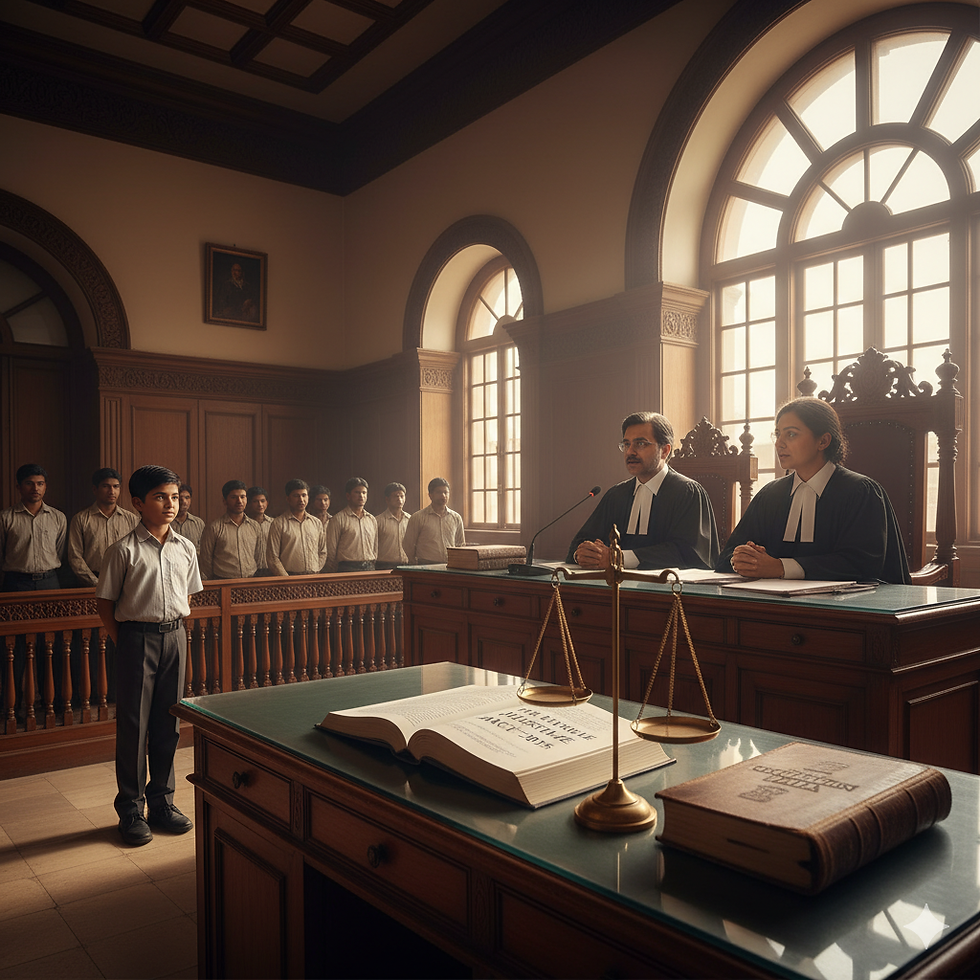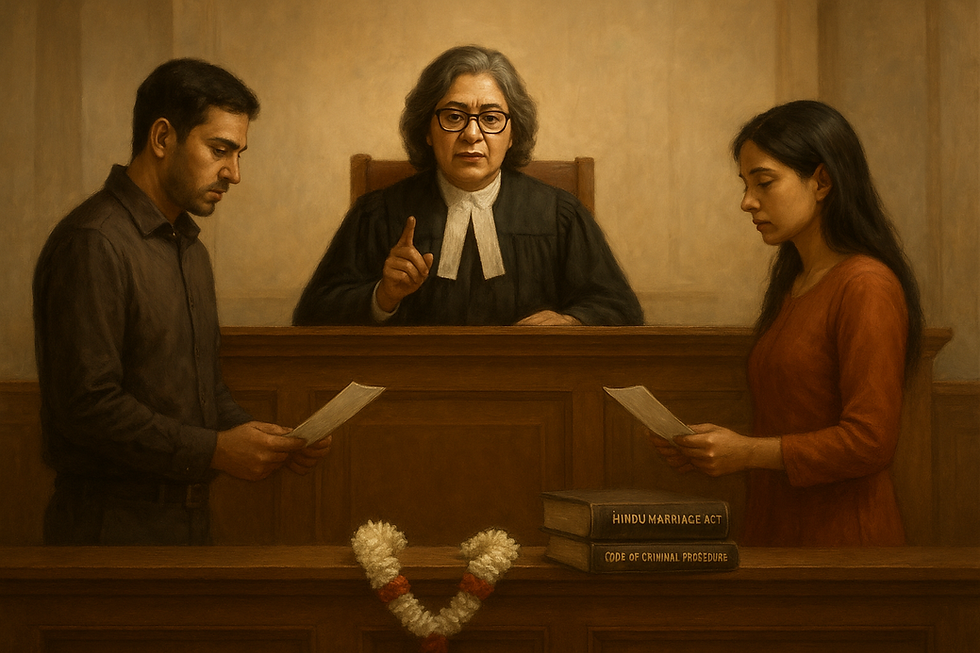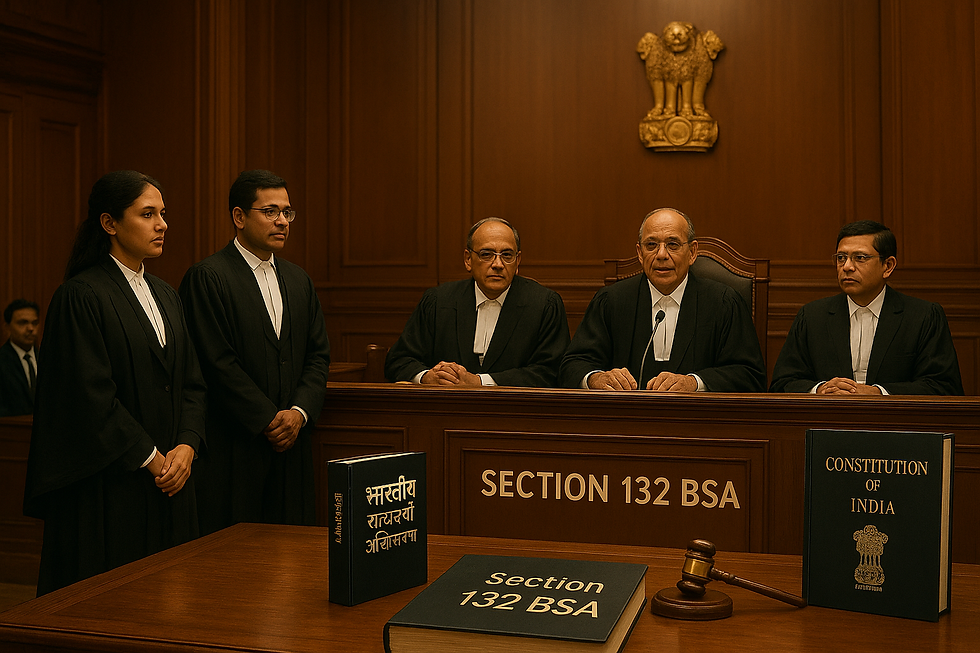Only the Constitution Reigns Supreme: CJI Gavai’s Subtle Reminder in Divisive Times
- Lawttorney.ai

- Jun 1
- 5 min read
At a recent gathering of legal professionals in Mumbai, Chief Justice of India (CJI) B. R. Gavai offered a striking observation that may prove to be one of the more defining public statements of his tenure: “Only the Constitution is supreme.”
Spoken not from the courtroom bench but during a felicitation by the Bar Council of Maharashtra and Goa, the words carried a clarity and force that echoed well beyond the event. As political and institutional friction grows louder in the country, his remark cuts through the noise like a quiet corrective- reminding all branches of power of their shared origin and singular boundary.

A Nation’s Institutions in Uneasy Dialogue
India is navigating a tense institutional moment. Disagreements between the judiciary and the political executive have moved into public view. Vice President Jagdeep Dhankhar recently criticized the judiciary, accusing it of acting like a “super Parliament.” His comments followed the Supreme Court’s involvement in matters where Governors and the President had delayed action on Bills passed by state legislatures.
The Court, seeking to avoid legislative paralysis, advised a more structured timeline. In response, Dhankhar insisted that Parliament holds the highest place and that no framework envisions a body superior to it.
In such an environment, Gavai avoided going on the defensive himself. Instead, he provided a reminder that the Constitution is alone higher than the legislature, executive, and judiciary.
"Asked to reply, which institution is paramount - the Judiciary, the Executive, or Parliament- I respond it is none. The Constitution alone is supreme."
No Single Branch Can Tower Over the Rest
Justice Gavai’s remarks did not call for judicial dominance; rather, they reiterated the equal standing of each arm of the state. In a constitutional democracy, no authority should operate without restraint, and none should operate without accountability.
“The Legislature, the Executive, and the Judiciary - each has its role, and none is above the other. All are guided by the Constitution.”
This framing is not merely symbolic. It underscores a practical reality: every branch of the Indian government is empowered and limited by the same document.
Justice Sanjiv Khanna recently struck a similar note in court when declining to act on a plea seeking contempt against a Member of Parliament for criticizing judges. His reasoning: every state organ must act within its constitutional bounds.
The Backbone of Democracy: Kesavananda Bharati and Beyond
Justice Gavai invoked the Kesavananda Bharati verdict to support his view. That 1973 ruling gave India the Basic Structure Doctrine, placing constitutional principles like secularism and federalism beyond the reach of even a parliamentary supermajority.
Gavai credited this doctrine with preserving Indian democracy against authoritarian drift.
Justice Abhay Oka, speaking at the same event, emphasized that in countries around India, democratic backsliding is no longer theoretical. He noted that Kesavananda wasn’t just a legal milestone - it was a lifeline.
“We cannot take our democracy for granted. We’ve seen how institutions collapse elsewhere. That doctrine has kept ours intact.”
Justice Oka also alluded to Justice Gavai’s Ambedkarite roots, saying his legacy is shaped by ideals of social justice and equality.
Ideals, Identity, and Justice: The Personal Journey of CJI Gavai
Breaking from formal speeches, Justice Gavai opened up about his personal journey from growing up in a small village in Amravati district to rising to the nation’s highest judicial office. He spoke of his initial interest in architecture and how his father, Ramkrishna Gavai - a staunch Ambedkarite leader encouraged him to pursue law.
“My values are drawn from Dr. Ambedkar’s vision and from the upbringing I received in a joint family. I learned inclusivity and social awareness by watching my father engage with people.”
His eventual decision to accept a judgeship, he revealed, was influenced by his father’s belief in using the judiciary to bring about real societal change.
Standing Firm Against Arbitrary Justice
CJI Gavai is also known for his position against what has been termed “bulldozer justice”-a practice where homes of accused persons are demolished before any legal conviction.
He reminded the public and state machinery alike that due process is not optional.
“The law protects everyone - even those accused of crimes. Stripping someone of their home without a hearing is not just illegal, it's an assault on dignity.”
His ruling was not merely legal, it was a moral stance against the creeping normalization of punishment before trial.
Justice That Travels Beyond Delhi
Justice Surya Kant, likely to take the mantle after Gavai, praised his colleague’s decision to visit Manipur amid unrest. Rather than issuing directions from afar, Gavai chose to meet people on the ground, emphasizing that justice must be both seen and felt.
“Justice must be seen and felt. The Chief Justice went where it mattered, not just for optics, but to listen. That’s leadership grounded in responsibility.”
An Unspoken Snub
While the event celebrated Justice Gavai’s achievements, there was a brief moment of dissatisfaction. Gavai gently pointed out that top officials from Maharashtra’s state administration were absent during his visit.
“When a son of this soil returns as the Chief Justice of India, it’s for the state’s leaders to decide whether they wish to acknowledge that. Their absence says enough.”
The remark, though calm, revealed a sense of hurt at the lack of courtesy from his home state’s bureaucracy.
A Career Committed to Balance and Compassion
At the event, a special compilation featuring 50 of Justice Gavai’s significant judgments was released - rulings that span areas from civil liberties to environmental law.
His peers, including Justices Dipankar Datta and Alok Aradhe, praised his consistent application of law with a human touch. His legal philosophy, they said, never let procedure outweigh compassion.
Returning to the roots of our living document - the Constitution of India
As India reflects on 75 years under its Constitution, Justice Gavai’s speech is less a critique of today’s tensions and more a call to realign with first principles. Institutions will differ, which is inevitable in a vibrant democracy. But conflict is not resolved by asserting power. It is resolved by returning to the document that empowers all sides in the first place.
In these challenging times, Chief Justice Gavai’s quiet yet powerful reminder - that no institution is above the Constitution - is exactly what India needs to uphold its democracy and unity.
Empower Your Legal Practice with AI – Join Our Free Webinar!
Are you a legal professional looking to boost your efficiency and stay ahead in a competitive field? Discover the power of Lawttorney.AI – the cutting-edge tool designed to streamline legal research, automate tasks, and enhance productivity.
👉 Don't miss out! Reserve your spot in our FREE webinar and experience the future of legal practice today. Register Now




Comments